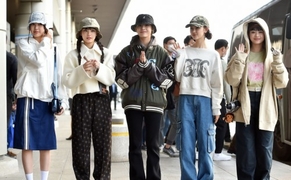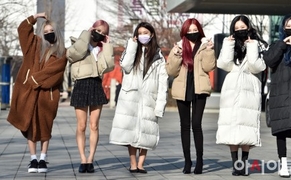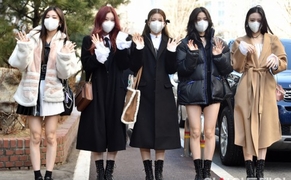 |
| Patients and their families wait for applications at Samsung Medical Center in Seoul on February 20, 2024./ Photographed by Seol So-young |
AsiaToday reporters Seol So-young, Park Joo-yeon, Kim Seo-yoon, and Hong Sum-mi
Patients waiting for urgent surgeries or treatment for serious diseases are growing increasingly nervous about medical chaos expected from mass resignations of trainee doctors in protest against the government’s planned hike in medical school enrollment quota.
A woman, surnamed Kim, in her 50s, said she visited Samsung Medical Center to get an appointment for her surgery, but then was notified by the hospital that it’s difficult to make an appointment. “It makes me so upset to hear that it will take some time to get an appointment. Doctors who play with people’s lives are evils,” she said.
Since the day the trainee doctors left the hospital, Samsung Medical Center has been postponing and cancelling surgeries. The hospital found that about 30 to 40 percent of the 525 trainee doctors submitted their resignations, and approximately 30 percent of nearly 200 surgeries is being either cancelled or postponed a day.
Cancellations and postponements have been also reported at Severance Hospital in Seoul. The number of surgeries decreased to nearly 180 from some 300. “Professors have come down to see outpatients. Trainee doctors are gone, and professors are working hard,” an official from Severance Hospital said. “I am uncertain how long it will last. What I’m concerned of the most is the fatigue of the medical staff,” the official said.
As major general hospitals are postponing and cancelling surgeries, patients waiting for surgeries and other urgent treatments are frustrated about delayed schedules. “I had a rectal cancer surgery last year, and I came to see the progress of the surgery,” a 66-year-old man, surnamed Kim, said. “I am worried about whether I will be able to get treatment. I hope the government will send doctors who abandons their patients to prison,” Kim said.
The health ministry conducted on-site inspections on 100 major training hospitals across the country and as of 11 p.m. Monday, more than 6,400 trainee doctors submitted their resignations and about 1,600 of them walked off the job. The ministry issued return-to-work orders for a total of 831 doctors. If they do not return to work despite the order, their licenses could be suspended.
Collective action of medical students across the country is also becoming visible. According to the education ministry, as of 6 p.m. Monday, seven out of 40 medical schools have approved a move to suspend classes, while 1,133 students at the schools have submitted their leave of absence applications.
“Trainee doctors who are key players in the medical field and medical school students who are key players in future medicine should not take collective action by taking the people’s lives and health hostage,” President Yoon Suk-yeol said during a Cabinet meeting at the presidential office, noting some surgeries for cancer patients have been delayed. “Doctors may not be public servants like soldiers or the police, but they must never collectively refuse to give medical treatment,” he said.
#patients #trainee doctors #resign #walk out #hospitals
Copyright by Asiatoday
Most Read
-
1
-
2
-
3
-
4
-
5
-
6
-
7





















